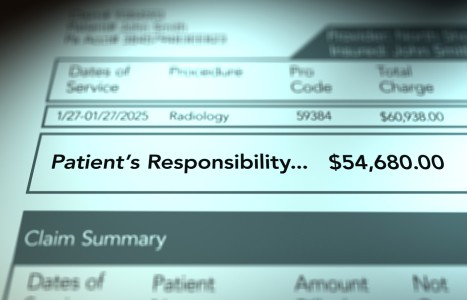Recent laws in New Jersey and California represent a disturbing trend that will negatively impact a practice’s ability to collect monies from patients, as well as expose them to significant penalties if the practice does not follow the mandatory guidelines to a T. Please be aware that a similar law may be coming to your state. The time to act is before the law is passed.
The Disadvantage of Medicare Advantage
- Medicare Advantage (MA) is in trouble – particularly the insurance companies that administer Medicare Advantage.
- Health insurance carriers often add bogus, but more highly reimbursed diagnoses to patients’ records and billing in a scheme to get paid more from the federal government.
- For chiropractors, if MA goes away, DC contracts with managed care organizations will change. It may affect reimbursement in ways not anticipated.
Medicare Advantage (MA) is in trouble – or perhaps I should say, the insurance companies that administer Medicare Advantage could be in trouble. A Wall Street Journal series entitled, “Insurers Pocketed $50 Billion From Medicare for Diseases No Doctor Treated,” piqued my interest.1 Huh?
The real story is about how health insurance carriers often add bogus, but more highly reimbursed diagnoses to patients’ records and billing, in a scheme to get paid more from the federal government. But that seems to be only one of the more egregious assaults on the Medicare system and seniors.
This is a story of corruption including “upcoding,” corporate “cherry-picking” of senior members, cancelling policies of the sickest members, and discouraging nursing homes from sending acutely sick patients to emergency rooms. It’s a story every healthcare provider needs to know.
First, some history. The federal government started the Medicare + Choice in 1997, giving the insurance companies’ “managed care” juggernaut a chance to show better control over costs with the hope of improved health outcomes.
This folly was followed by a bigger faux pax in 2003 when the Modernization Act was passed, changing the name to Medicare Advantage (MA). But a new wrinkle was added, rewarding higher reimbursement to the insurance companies for their sickest “members.” More complex diagnostic coding resulted in higher income for these companies. What could go wrong? It became a siren call for greed.
The cost comparison between traditional Medicare and MA started to show up, and it wasn’t good for MA.2 Costs were higher and outcomes were no better. But the number of codes for severe or complex diagnoses were ridiculously higher in the MA plans. For instance, the number of patients diagnosed with diabetic cataracts, HIV, and hepatitis-C (higher reimbursement codes) were many times more prevalent in MA plans.1
Most often, these diagnostic complex patients were never treated, since they did not actually have the diagnoses. Why? Because “upcoding” was the result of MA companies finding ways to lie about their members health.
For example, I will tell you my story. When I turned 65, I chose a MA plan because I was healthy, frugal and … why not? The insurance company I chose rhymes with “banana.” So, I get a call from someone at this company welcoming me to MA, and telling me that a physician (a physician?) wants to come to my place of employment to “complement your primary care.”
At that time, I had moved my independent practice after many years within a medical group. I replied, “I don’t understand. I just saw my PCP walking down the hall about 10 feet from me, so I don’t I understand why I need a second primary care doc!”
I was clueless at the time. The cost of an MD/DO “house call” seemed way weird. It was some time before I understood the scam. An actual physician or nurse comes to see you, interviews you and then makes up additional diagnoses that are just wrong! The more complex diagnoses will make the company a lot of money, despite the provider costs.1
There is another scam story I remember well. When MA first started, the upcoding tactic was not in full swing. Instead, the strategy was to keep “real” high-cost Medicare patients out of the MA plan. So … Medicare information seminars were often held in venues that had no elevators, to discourage potential MA members with oxygen tanks and walkers from enrolling. I witnessed that.
This was known as “cherry-picking.” A company I will call “UniversalHealthChaos” (UHC) eventually started cancelling the sickest members in the MA because they were too expensive. Likewise, many members voluntarily left the MA plan because they were denied preauthorization for diagnosis or treatment.3
Another way for MA companies to trim costs is to keep MA members from getting expensive ER visits. I understand the argument that assisted-living members of MA plans may often not need the expenses of urgent care or a visit to the emergency room. But the tactic of having actual insurance medical staffers, working inside the nursing homes and checking out the referral activity, was a bit chilling to me.
An investigational series by The Guardian discovered that the largest healthcare conglomerate in the nation (UHC) paid nursing homes thousands in bonuses to help cut hospital transfers for very sick residents.4 “That’s not useful when it might be a stroke,” said one whistleblower.
From what I have read, MA members seem relatively happy with their Medicare plans. About 55% of seniors choose these plans. But my experience with patients is that when an expensive procedure is needed, the preauthorization process often is cumbersome. I have often figured out the most probable diagnosis that would have been settled by an MRI, only to have it denied. Sound familiar?
For chiropractors, if MA goes away, our contracts with managed care organizations will change. The copayment system for Medicare patients may be discontinued. It may affect reimbursement in ways not anticipated. Patient costs may go up or down. What kind of conversation, if any, should we be having with our senior patients about the choice between Medicare Advantage and traditional Medicare?
References
- Weaver C, et. Al., “Insurers Pocketed $50 Billion From Medicare for Diseases No Doctor Treated.” The Wall Street Journal, July 6, 2024.
- “Grassley Pushes for Answers on UnitedHealth Group’s Medicare Advantage Billing Practices.” Grassley.senate.gov, Feb. 25, 2025.
- Fuglesten-Biniek J, et al. “Medicare Spending Was 27 % More for People Who Disenrolled From MA Than for Similar People in Traditional Medicare.” Kaiser Family Foundation, Dec. 6, 2024.
- Joseph G. “Revealed: UnitedHealth Secretly Paid Nursing Homes to Reduce Hospital Transfers.” The Guardian, May 21, 2025.



